Norway 1–0 Nigeria: From 1994 to 2025—Where Did Nigeria’s Footballing Spirit Go?
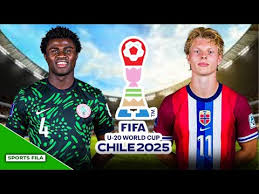
Introduction
The Nigeria’s U-20 team fell lost to Norway at Estadio Fiscal, Talca on Monday, 29 September 2025 at the game that started 17:00 (local time)., many brushed it off as just another football result. But for a nation that once stood tall as a global football powerhouse, the loss and other previous ones including Nigeria losing out from the world cup qualifierscarries a heavier weight. It is not merely about ninety minutes of play, it is a stark reminder of how far Nigerian football has slipped from its golden age.
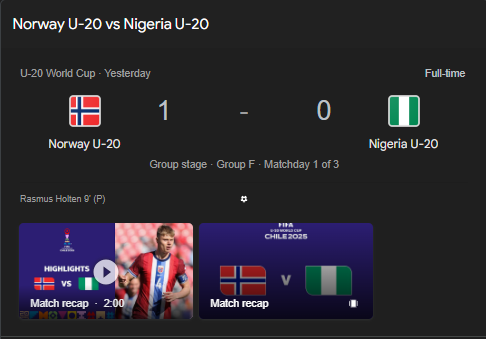
In the 1990s, the Super Eagles were more than a team; they were a symbol of pride, fearlessness, and talent recognized worldwide. Today, defeats like this raise uncomfortable questions. How did the fearless, world-shaking Super Eagles of the 1994 generation move to a side struggling to inspire football belief on the youth stage?
The 1990s marked Nigeria’s undisputed golden age in football. The Super Eagles rose to continental dominance with theirtriumphant victory at the 1994 Africa Cup of Nations (AFCON), stamping their authority as the best in Africa. That same year, Nigeria made its long-awaited debut at the 1994 FIFA World Cup in the USA, immediately making waves on the global stage. The Eagles stunned the world with a dazzling 3–0 victory over Bulgaria, went on to qualify for the knockout stages, and came within minutes of eliminating Italy before Roberto Baggio’s brilliance turned the tide. This era was defined by a constellation of iconic players whose names still command respect across the footballing world: Rashidi Yekini, whose roaring celebration against Bulgaria became a timeless image; Jay-Jay Okocha, the magician with the ball at his feet; Sunday Oliseh, the midfield general; Finidi George, with his lightning pace on the flanks; and Emmanuel Amunike, the tireless forward winger who delivered in crucial moments.
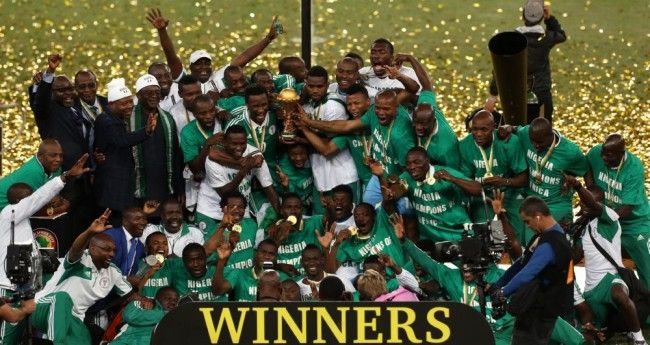
But beyond individual brilliance, the Super Eagles of the 1990s carried something bigger, an identity. They played with fearless confidence, entertained with flair, and were respected globally as Africa’s brightest footballing light. To opponents, they were a force to be reckoned with. To Nigerians, they were a source of unity, joy, and boundless pride.
When Did They Fall: Structural or Leadership Failures?
If the 1990s were Nigeria’s golden era, the decades that followed exposed the cracks beneath the glitters, over the past years there has been a decline in this energy although there have been some heroic moment but the truth is not far-Nigeria’s football has declined because of structural and leadership failures that eroded the foundation of the game. The Nigeria Football Federation (NFF) has long been plagued by poor administration and constant infighting. Mismanagement of funds, late payments of salaries and bonuses, and lack of transparency became recurring headlines, undermining both players’ morale and public trust. Beyond governance, The Nigerian government has failed to invest in a consistent and functional youth development system. While talents like Mikel Obi, Vincent Enyeama, and John Utaka emerged, their brilliance was often accidental rather than the result of structured grassroots nurturing. Unlike countries such as Norway, which poured resources into grassroots academies, coaching education, and long-term planning, Nigeria relied too heavily on raw, individual talent, hoping for another Jay-Jay Okocha or Kanu Nwankwo to appear instead of building a system that produces them consistently. The result has been predictable: flashes of brilliance without sustained dominance. The fearlessness and identity of the Super Eagles of the 1990s has now gave way to inconsistency, administrative chaos, and missed opportunities.
Nigeria’s 1–0 defeat to Norway at the U-20 level is not just another scoreline; it might be a silent pointer to the symptom of a deeper, decades-long decline. Losing to a nation with a fraction of Nigeria’s population and footballing heritage highlights how far the once-mighty Eagles have fallen. Today’s young Nigerian players lack the exposure, facilities, and tactical discipline that defined the legends of the 1990s.
The neglect of the domestic league is central to this crisis. While the Nigerian Professional Football League (NPFL) has produced gems in the past, recent trends has shown that it is starved of investment, structure, and credibility. Instead of a strong local foundation, The result is a generation caught between promise and unfulfilled potential, a stark contrast to the organized and disciplined systems we see in other countries especially in Europe and their success in football.
What Needs to Change?
For Nigeria to rise again, cosmetic fixes will not suffice. What is needed is a footballing revolution:
Rebuild Youth Academies & Grassroots Football: Structured programs across the country to identify and nurture talent from an early age.
Professionalize the Nigerian League: Transparent governance, better facilities, and financial stability to make the NPFL a true breeding ground for world-class players.
Stable Coaching Philosophy: The success of Clemens Westerhof in the 1990s was no accident, it was the product of a long-term project. Nigeria must adopt a consistent football identity and resist constant managerial sackings.
Public + Private Investment in Infrastructure: From training facilities to stadiums, Nigeria needs modern structures where young players can develop with dignity and discipline.
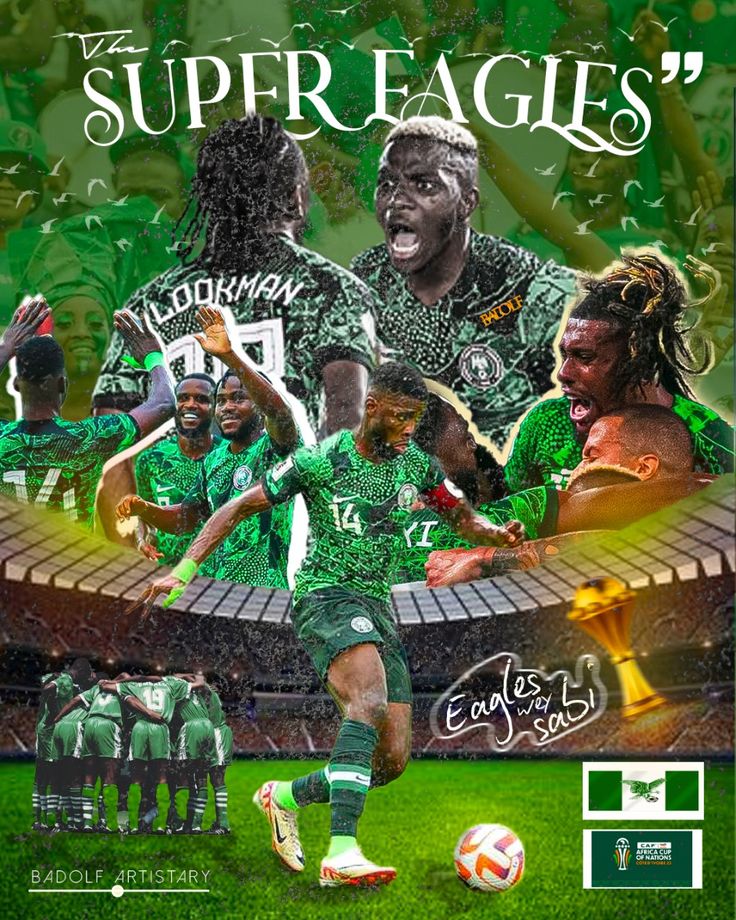
Only with these reforms can the Nigerian government recapture its footballing soul.
The defeat against Norway is not the end of the story, it is a warning. The spirit of 1994, when Nigeria stood tall as a fearless and respected footballing force, is not dead — it is dormant, waiting to be reawakened. But rekindling that fire requires honesty, reform, and the courage to learn from the past.
Nigeria must choose: continue down a path of decline marked by administrative failures and missed opportunities, or ignite a new era built on structure, accountability, and passion.
Until Nigeria learns from its glorious past, defeats like Norway 1–0 will continue to haunt it’s future.
You may also like...
Be Honest: Are You Actually Funny or Just Loud? Find Your Humour Type

Are you actually funny or just loud? Discover your humour type—from sarcastic to accidental comedian—and learn how your ...
Ndidi's Besiktas Revelation: Why He Chose Turkey Over Man Utd Dreams

Super Eagles midfielder Wilfred Ndidi explained his decision to join Besiktas, citing the club's appealing project, stro...
Tom Hardy Returns! Venom Roars Back to the Big Screen in New Movie!

Two years after its last cinematic outing, Venom is set to return in an animated feature film from Sony Pictures Animati...
Marvel Shakes Up Spider-Verse with Nicolas Cage's Groundbreaking New Series!

Nicolas Cage is set to star as Ben Reilly in the upcoming live-action 'Spider-Noir' series on Prime Video, moving beyond...
Bad Bunny's 'DtMF' Dominates Hot 100 with Chart-Topping Power!

A recent 'Ask Billboard' mailbag delves into Hot 100 chart specifics, featuring Bad Bunny's "DtMF" and Ella Langley's "C...
Shakira Stuns Mexico City with Massive Free Concert Announcement!

Shakira is set to conclude her historic Mexican tour trek with a free concert at Mexico City's iconic Zócalo on March 1,...
Glen Powell Reveals His Unexpected Favorite Christopher Nolan Film

A24's dark comedy "How to Make a Killing" is hitting theaters, starring Glen Powell, Topher Grace, and Jessica Henwick. ...
Wizkid & Pharrell Set New Male Style Standard in Leather and Satin Showdown

Wizkid and Pharrell Williams have sparked widespread speculation with a new, cryptic Instagram post. While the possibili...


)
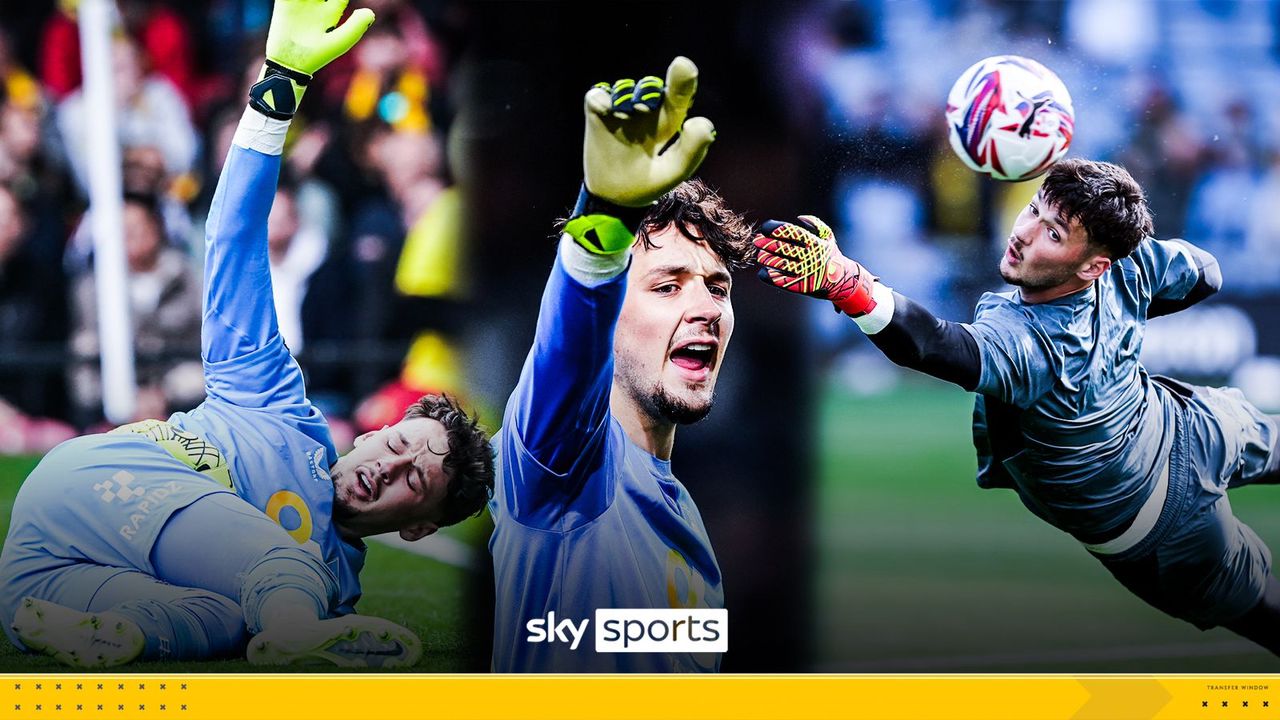
)
)